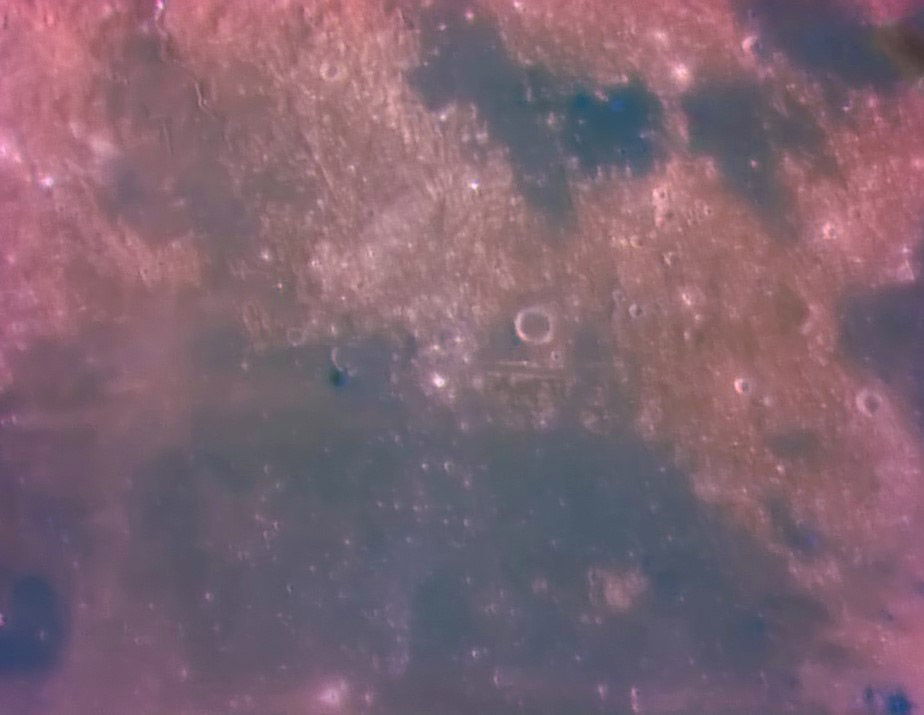November 8, 2024
LPD Confirmed in Australia
Originally published June 10, 2014

image by Stefan Buda, Australia
Recently, Raf Lena requested that observers try to image the Yangel lunar pyroclastic deposit (LPD) to see if it could be detected from Earth. Here is the first response I've seen, in Stefan's own words:
Last night the sky briefly cleared over Melbourne and I had a go at imaging Yangel1 in mediocre seeing. Although it is still a few days to full Moon, but clear nights are few around this time of year down here. The solar illumination not being high enough, one of the slopes of the dome is still in shadow but the other side shows the dark blue pyroclastic deposit. Interestingly, the barely discernible western crater near Ina, shows a similar coloured halo, although on the LRO close ups it looks like a normal impact crater.
CAW here: The Sun seems to be too high for any shadow to remain on the Yangel dome so I guess the dark spot is the pyroclastic deposit, although the eastern half isn't visible. Looking closely, the narrow dark stripe that crosses the crater rim - see orbiter view - is visible in Stefan's image. I am sure that Raf will look forward to receiving more images from different size telescopes and at a range of look angles. Thanks, Stefan!
Chuck Wood
Technical Details
09 June 2014. 405mm Dall-Kirkham telescope and DMK21AU04 camera, through Astrodon I-series RGB filters
Related Links
21st Century Atlas chart 11.
Yesterday's LPOD: Graben Gap
Tomorrow's LPOD: A Mountainous Shadow
COMMENTS?
Register, Log in, and join in the comments.



